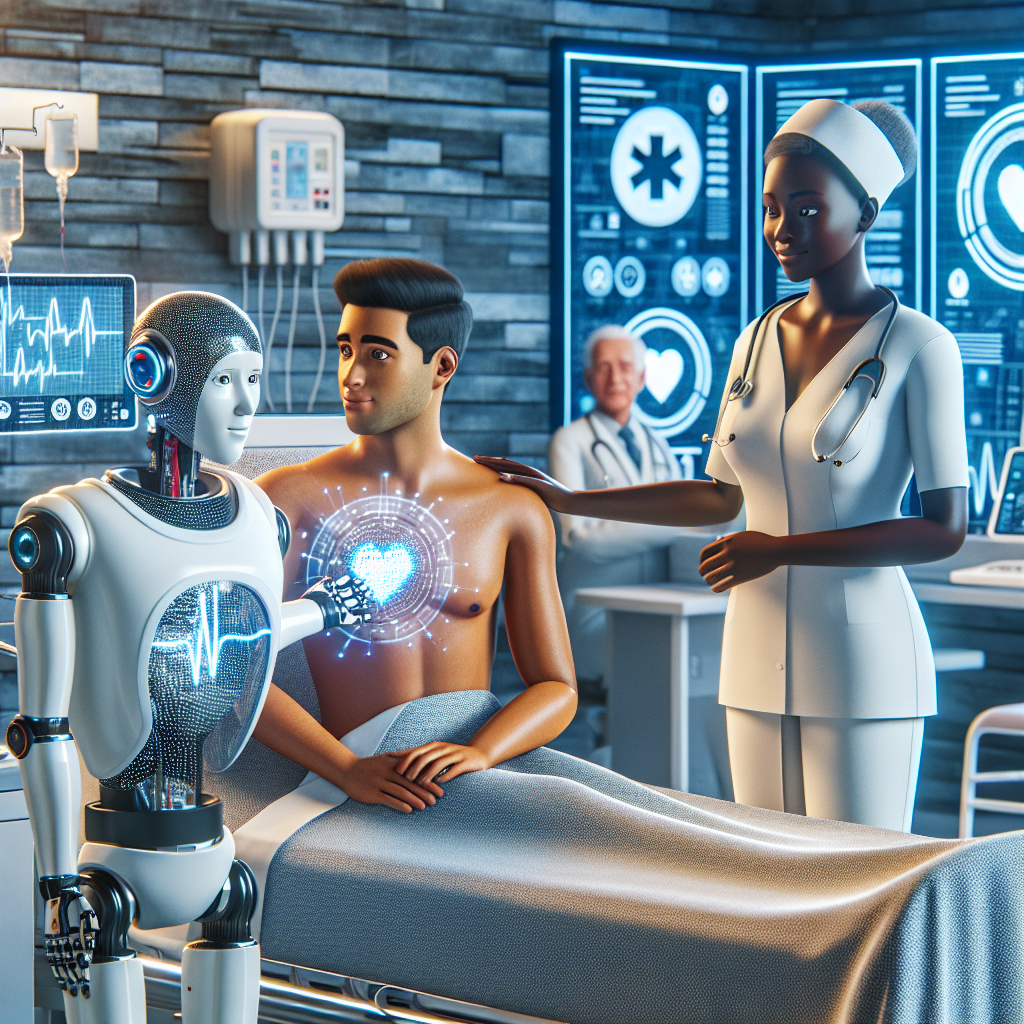AI Integration: A Key to Improving Patient Care
In recent years, the healthcare industry has seen a rapid advancement in technology, with the integration of artificial intelligence (AI) becoming increasingly prevalent. AI has the potential to revolutionize patient care by improving efficiency, accuracy, and outcomes. From diagnostics to treatment plans, AI integration can help healthcare providers deliver better care to their patients. In this article, we will explore the benefits of AI integration in healthcare and how it can transform the way patient care is delivered.
Benefits of AI Integration in Healthcare
1. Improved Diagnostics: One of the key benefits of AI integration in healthcare is its ability to improve diagnostics. AI-powered systems can analyze medical imaging scans, lab results, and patient data to quickly and accurately identify potential health issues. This can help healthcare providers make more informed decisions and develop more effective treatment plans.
2. Personalized Treatment Plans: AI integration can also help healthcare providers develop personalized treatment plans for their patients. By analyzing patient data and medical history, AI systems can recommend tailored treatment options that are more likely to be effective. This can lead to better outcomes and a higher quality of care for patients.
3. Enhanced Patient Monitoring: AI technology can also be used to monitor patients in real-time, providing healthcare providers with valuable insights into their health status. For example, wearable devices equipped with AI algorithms can track vital signs, activity levels, and other key indicators, alerting healthcare providers to any changes or abnormalities. This can help prevent complications and improve patient outcomes.
4. Streamlined Administrative Processes: AI integration can also streamline administrative processes in healthcare, reducing the burden on healthcare providers and improving efficiency. AI-powered systems can automate tasks such as scheduling appointments, managing medical records, and processing insurance claims, allowing healthcare providers to focus more on patient care.
5. Predictive Analytics: AI integration can enable healthcare providers to use predictive analytics to identify trends and patterns in patient data. By analyzing large amounts of data, AI systems can predict potential health risks, identify high-risk patients, and intervene proactively to prevent complications. This can lead to better outcomes and lower healthcare costs.
Challenges of AI Integration in Healthcare
While the benefits of AI integration in healthcare are significant, there are also challenges that need to be addressed. Some of the key challenges include:
1. Data Security: One of the main concerns surrounding AI integration in healthcare is data security. Patient data is highly sensitive and must be protected from unauthorized access or breaches. Healthcare providers must ensure that proper security measures are in place to safeguard patient information when using AI technology.
2. Regulatory Compliance: Healthcare is a highly regulated industry, and healthcare providers must comply with various regulations and standards when implementing AI technology. Ensuring regulatory compliance can be complex and time-consuming, requiring healthcare providers to stay informed of the latest guidelines and requirements.
3. Integration with Existing Systems: Integrating AI technology with existing healthcare systems can be challenging, as different systems may use different formats and protocols. Healthcare providers must ensure that AI systems are compatible with existing systems and can seamlessly exchange data to avoid disruptions in patient care.
4. Training and Education: Healthcare providers and staff may require training and education to effectively use AI technology. This can involve learning how to interpret AI-generated insights, navigate AI-powered systems, and incorporate AI tools into their daily workflow. Training programs and ongoing support are essential to ensure the successful integration of AI in healthcare.
FAQs
1. How can AI integration improve patient outcomes?
AI integration can improve patient outcomes by providing healthcare providers with valuable insights into patient data, enabling personalized treatment plans, and predicting potential health risks. By leveraging AI technology, healthcare providers can make more informed decisions and deliver more effective care to their patients.
2. Is AI integration in healthcare safe?
Data security is a major concern when it comes to AI integration in healthcare. Healthcare providers must implement proper security measures to protect patient data and ensure compliance with regulations and standards. By following best practices and guidelines, healthcare providers can minimize the risks associated with AI integration in healthcare.
3. What are some examples of AI applications in healthcare?
There are many examples of AI applications in healthcare, including medical imaging analysis, predictive analytics, personalized treatment recommendations, and patient monitoring. AI technology is being used in various areas of healthcare to improve diagnostics, treatment, and patient care.
4. How can healthcare providers prepare for AI integration?
Healthcare providers can prepare for AI integration by investing in training and education for staff, ensuring regulatory compliance, and evaluating the security of patient data. By taking these steps, healthcare providers can successfully integrate AI technology into their practices and improve patient care.
In conclusion, AI integration is a key to improving patient care in healthcare. By leveraging AI technology, healthcare providers can enhance diagnostics, develop personalized treatment plans, monitor patients more effectively, streamline administrative processes, and use predictive analytics to improve outcomes. While there are challenges that need to be addressed, the benefits of AI integration in healthcare are significant and can lead to better care for patients. By embracing AI technology and overcoming obstacles, healthcare providers can transform the way patient care is delivered and ultimately improve the health and well-being of their patients.

